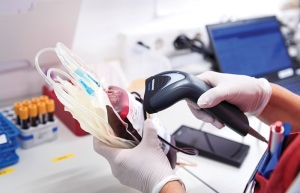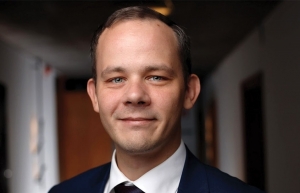Swedes take on sustainable approach
Ann Måwe, Sweden’s Ambassador to Vietnam, said that after 46 years of being an aid partner, Sweden had transitioned to a trade-oriented relationship with Vietnam, cementing robust trade ties between the two nations.
 |
| By leveraging Tetra Pak's advanced technology and all-inclusive expertise, along with DenEast's manufacturing capabilities, Bloom. offers a novel solution for F&B sector." |
“Many well-known Swedish companies have a presence in Vietnam today. Some of the household’s names are ABB, AstraZeneca, Atlas Copco, Electrolux, Ericsson, IKEA, Oriflame, SKF, Volvo, and Tetra Pak, among others. With the EU-Vietnam Free Trade Agreement already entering into force, we are seeing a growing interest from Swedish companies in Vietnam, as the potential destination for their expansion plan,” she said.
For example, Tetra Pak teamed up with another Swedish group, DenEast, earlier this month for the inauguration of Bloom., Vietnam’s first-ever centre for food and beverage innovation.
She also expressed admiration for Swedish companies’ contribution to Vietnam’s economic advancement through innovation and collaboration.
The partnership between Swedish and Vietnamese firms, built on co-creation and collaboration, highlights the potential of Swedish innovation in supporting Vietnam’s ambition to become a global manufacturing hub, Måwe added.
Moreover, Sweden’s leadership role in innovation and sustainability presents ample partnership opportunities with countries pursuing green transitions. Vietnam’s priority towards sustainable development aligns well with Sweden’s expertise, allowing for collaboration and co-creation through innovation.
Minister of Industry and Trade Nguyen Hong Dien acknowledged the strategic importance of Sweden in Vietnam’s trade landscape within the Nordic region, emphasising the potential for mutual growth in sectors such as clothing, footwear, agriculture, seafood, chemicals, pharmaceuticals, and machinery.
David Liden, trade commissioner of Sweden to Vietnam, also highlighted the sustainability-driven approach of major Swedish businesses in Vietnam, including Ericsson, Tetra Pak, Assa Abloy, Polarium, Hitachi Energy, and Hestra. These companies prioritise sustainable practices in their operations, opting for green setups and implementing sustainable measures among their staff.
“Swedish solution providers of standardised management system are also ready to work with Vietnamese industry to figure out best practices,” Liden told VIR in March.
Pham Hong Quat, director of the National Agency for Technology Enterpreneurship and Commercialisation under the Ministry of Science and Technology, has shown particular interest in Sweden’s “triple helix model of innovation”. This model seeks to foster symbiotic interactions between universities, industries, and government agencies, thereby promoting comprehensive socioeconomic development.
Quat suggested that Vietnam could take a leaf from Sweden’s innovative model. He stressed that the innovation centres and the strong collaboration between relevant stakeholders are significant drivers contributing to Sweden’s sustainable economic growth trajectory.
“The attention given to this model suggests that Vietnam is open to exploring innovative, internationally recognised strategies for socioeconomic growth. The adoption of such a model could catalyse Vietnam’s journey towards becoming a more innovation-driven economy. It also offers a fresh perspective on the role of academia, government and industry collaboration in spurring nationwide development,” he told VIR.
Swedish investments in Vietnam have seen a robust surge in the first half of this year, with $167.97 million being poured into the country. This includes five new projects valued at $154.6 million, an augmented-capital project with a total capital of $9.46 million, and $3.9 million of paid-in capital across three projects. As of June, the total accumulated capital stood at $680.49 million, according to the Foreign Investment Agency under the Ministry of Planning and Investment.
Historically, Sweden’s trade with Vietnam was confined primarily to mechanical engineering, pharmaceuticals, household appliances, and environmental technology. However, the relationship has now evolved to span multiple new fields, reflecting the common potential and shared interests between the two nations.
This diversification is evident in several notable instances. In 2021, AstraZeneca pledged a fresh investment to bolster Vietnam’s pharmaceutical production capacity. This pledge has taken AstraZeneca’s total investment in Vietnam to $308 million for the 2020-2024 period.
Similarly, Ericsson reaffirmed its commitment to building 5G telecommunications infrastructure for Vietnam, while ABB inaugurated a new centre for the manufacturing of robots and power transmission equipment in the northern province of Bac Ninh last year.
 | Swedish groups pioneer innovation Innovations from Sweden are increasingly prevalent in Vietnam, with climate change forcing a sustainable shift towards new high-tech and digitalised offerings. |
 | Swedish solutions top sustainability wish list The latest innovative stories from Sweden, green solutions of its businesses, and the modernised image of this nation as a hub for sustainable innovations were all discussed in Ho Chi Minh City last week. |
 | Swedish Deputy Minister for Foreign Affairs' Hanoi visit deepens bilateral ties The Swedish Deputy Minister for Foreign Affairs, Robert Rydberg, is visiting Hanoi from June 9 to 11 with the aim of strengthening bilateral relations with Vietnam. |
 | Sweden leading in green, digital goals Companies are betting on digital transformation and 5G to increase operational efficiency, competitiveness, and sustainability. David Lidén, trade commissioner of Sweden to Vietnam, talked to VIR’s Bich Thuy about the lessons from Sweden in the twin green and digital transition. |
What the stars mean:
★ Poor ★ ★ Promising ★★★ Good ★★★★ Very good ★★★★★ Exceptional
Related Contents
Latest News
More News
- SK Innovation-led consortium wins $2.3 billion LNG project in Nghe An (February 25, 2026 | 07:56)
- THACO opens $70 million manufacturing complex in Danang (February 25, 2026 | 07:54)
- Phu Quoc International Airport expansion approved to meet rising demand (February 24, 2026 | 10:00)
- Bac Giang International Logistics Centre faces land clearance barrier (February 24, 2026 | 08:00)
- Bright prospects abound in European investment (February 19, 2026 | 20:27)
- Internal strengths attest to commitment to progress (February 19, 2026 | 20:13)
- Vietnam, New Zealand seek level-up in ties (February 19, 2026 | 18:06)
- Untapped potential in relations with Indonesia (February 19, 2026 | 17:56)
- German strengths match Vietnamese aspirations (February 19, 2026 | 17:40)
- Kim Long Motor and AOJ Suzhou enter strategic partnership (February 16, 2026 | 13:27)

 Tag:
Tag:




















 Mobile Version
Mobile Version